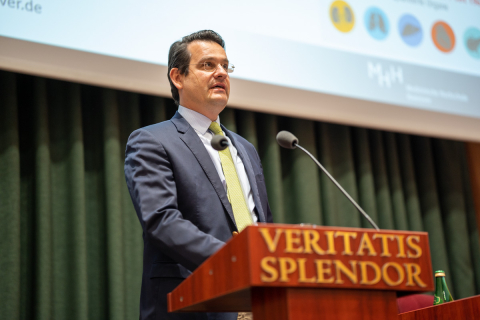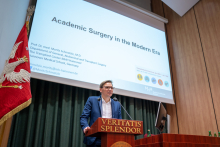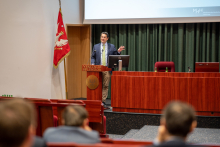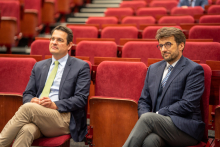Prof. Schmelzle specializes in cancer surgery and transplant surgery of abdominal organs. In his presentation, he focused on oncologic liver surgery. He presented current trends and the latest research in this field.
Difficulties that may be encountered
To begin with, there was talk about the difficulties a surgeon may encounter when planning liver cancer surgery. This concerned, for example, the large size of the tumor or its location near important structures of the organ. The expert pointed out what methods and techniques should then be used. He also showed videos of complicated resections of large and unfavorably located tumors.
Surgical strategies
The speaker presented various surgical strategies, including parenchyma-sparing surgery, two-stage hepatectomy, or combined resection and ablation of liver tumors. He also devoted much attention to the concept of personalized surgery.
He also emphasized the benefits of using laparoscopy.
- Minimally invasive methods mean fewer complications, less pain after surgery, shorter hospital stays, and have comparable efficacy in oncological treatment, the expert said.
Interdisciplinarity is a necessity
An important theme of the lecture was interdisciplinarity. Prof. Schmelzle emphasized the role of an interdisciplinary approach in oncology treatment, and spoke about the latest methods in oncology, namely genetic therapies and immunotherapy.
The lecture took place on May 19. It was organized within the framework of the STER Internationalization of Doctoral Schools program of the National Agency for Academic Exchange. The event was hosted by Prof. Michal Grąt, Head of the Chair and Department of General, Transplant and Liver Surgery and Director of the Doctoral School. The rectoral authorities were represented by Prof. Paweł Włodarski, Vice Rector for International Relations, Development and Promotion.



